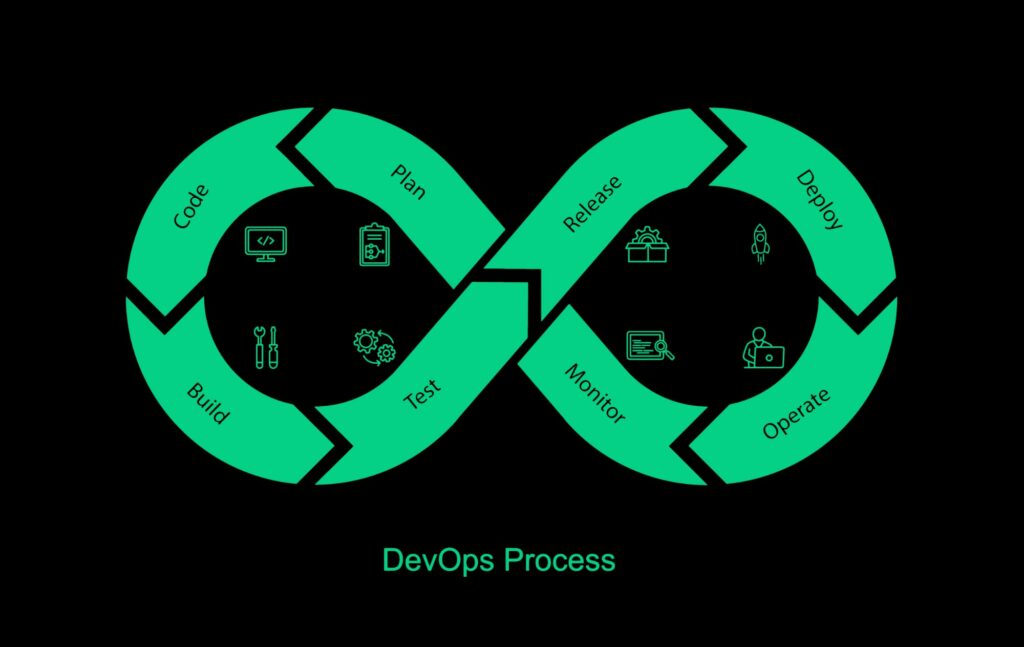According to Statista, over 255 billion mobile apps were downloaded in 2022, and consumers spent a total of $4.86 billion on mobile apps in Q2 of 2022 alone. Comparatively, there were a total of 230 billion app downloads in 2021.
With such monumental numbers, you can see that mobile consumers’ insatiable demand for fun, useful, and unique apps shows no signs of slowing down, and the growth of the mobile app market seems to be picking up the pace to match. That being said, app developers are left to question how they can reliably and consistently churn out mobile apps fast enough to keep up with ever-increasing demand.
DevOps teams seeking answers to that very question are beginning to explore numerous solutions to expedite the app development and testing process. One proposed solution that has shown quite a bit of promise, in particular, involves scriptless app testing.
If you’ve never heard of scriptless testing (or scriptlessness), we invite you to join us as we explore everything you need to know about this potentially revolutionary app development framework. We’ll discuss the basics of scriptlessness and highlight why you may need to incorporate it into your own development strategies.
What is scriptlessness?
Historically, mobile app testers have needed to manually write their code and execute tests on it. If you have ever tested apps in this old-fashioned way, then it’s very likely you know firsthand that the process can be quite rigorous, to say the least. You may have even thought to yourself, there has got to be a better way.
These sentiments were what eventually led to the development of automated testing methods, and although automated testing tools certainly expedited the testing process, such approaches could not keep pace with the demands of the modern app development industry. The reason is that automated testing still requires the creation of detailed scripts.
Ultimately, the search for an even more efficient testing solution led to the creation of scriptless tools. Developers can now test apps in a scriptless state without the need to write even one scrap of code. Instead, they can use pre-fabricated testing tools that expedite testing while simultaneously minimizing the need for manual interactions with the app.
To be fair, there is no such thing as a truly scriptless environment, as even proclaimed scriptless testing still uses and requires some level of scripting. However, the key factor is that testers don’t have to create those scripts; the testing platform uses recording and playback tools to create scripts for testers.
Scriptless testing tools and frameworks are not new, necessarily — they have actually been around for quite some time — but these modern tools are becoming more sophisticated and widely noticed with each iteration.
How does scriptless testing work?
Scriptlessness refers to scriptless testing solutions. These simpler approaches replace a traditional, code-based environment with an intuitive interface that just about anyone can use. Whether you are a skilled programmer or brand-new to the world of app development, you can create your own testing application with little effort.
Once you launch the testing browser, simply navigate the various drop-down menus and select the desired actions. After you have chosen the objects from the menus, the interface will generate the testing script for you; all you need to do is launch the test, kick back, and wait on the results.
The best scriptless testing tools feature machine learning and artificial intelligence software integrations. These technologies power a multitude of functionalities, such as record and playback features and automated script generation capabilities.
Pain points that scriptlessness solves
Scriptlessness is widely considered to be the future of mobile app development. It is unsurprising that so many share these sentiments, as testing in a scriptless environment breaks through numerous pain points that exist when using traditional testing, such as:
- Difficulty sourcing talented testers
- Increased risk of committing mistakes
- Slow execution
- An inability to efficiently regression-test apps
In addition to the challenges above, old-school testing techniques also slow time to market, which in turn can drive up project costs and cause a development team to miss the boat.
As you are well aware, the mobile app market is in a state of constant flux, which means that if you want to capitalize on a current trend, you need to get your app to market as quickly as possible, or else it might already be yesterday’s news by the time it hits app stores.

Scriptlessness vs. scripted testing
In order to engage in script-based testing, users must possess extensive coding and automation expertise, as they will be responsible for writing their own scripts and creating custom automation protocols to execute each round of testing.
A key factor that makes script-based testing inefficient is that its tests can seldom be reused. Additionally, testers must custom-build any integrations with third-party apps, which only serves to further contribute to the time-intensive nature of script-based testing.
Conversely, in a scriptless environment, testers only need general business knowledge and an understanding of what makes an application user-friendly in order to conduct adequate app tests. Scriptless testing tools frequently include third-party integrations as a standard offering as well, meaning users can quickly integrate the platform into other commonly used development tools, which expedites the app development and testing process.
Altogether, testing via scriptlessness is widely considered superior to script-based testing alternatives, but it is still important to understand the standalone benefits and potential drawbacks of such a methodology so that you can determine whether it will deliver value to your DevOps team.
Let’s take a closer look at the unique advantages and pitfalls of scriptless testing methods:
Advantages of scriptless testing
Scriptlessness offers numerous benefits. By using this modern mobile app testing method, you can:
- Expedite your time to market
- Decrease development and testing costs
- Boost productivity
- Improve your testing coverage
- Create reusable test functions
Another key perk to testing with scriptless tools is that virtually anyone can do it. You will no longer have to rely solely on talented developers for mobile app testing. Instead, anyone with a good sense of the needs of your business can participate in the testing process without slowing down app development. The bottom line is that scriptless testing makes developing apps a faster, more efficient, and cheaper process.
Potential pitfalls of scriptless methods
Writing custom code will always have a place in app testing, given that scriptless testing tools do not provide the same level of flexibility as wholly-custom scripts. As such, there may be instances where developers decide that writing code is the best approach for testing certain app features.
Methods involving scriptlessness not only provide less flexibility but also open the door to testing overload. Making mobile app testing more accessible means you are now enabling dozens of team members to write tests, which can lead to redundancy and resource waste.
The good news is that you can easily overcome this drawback by using discretion when creating testing protocols. Be selective when granting access to your new testing platform and ensure that there are proper oversight measures in place to prevent redundant testing.
Why no-code testing is the future
Adopting a testing framework of scriptlessness will enable your development team to decrease its mobile app testing expenses and expedite its apps’ speed to market. More importantly, these tools can help you meet customers’ ever-growing demand for fast, functional mobile apps.
If you are ready to embrace the future of mobile app development, Sofy can help. Our solutions allow you to automate mobile app testing without writing a single line of code. To learn more about this exciting opportunity get a demo with Sofy and experience the future of mobile app testing today.
Disclaimer: The views and opinions expressed above are those of the contributor and do not necessarily represent or reflect the official beliefs or positions of Sofy.







